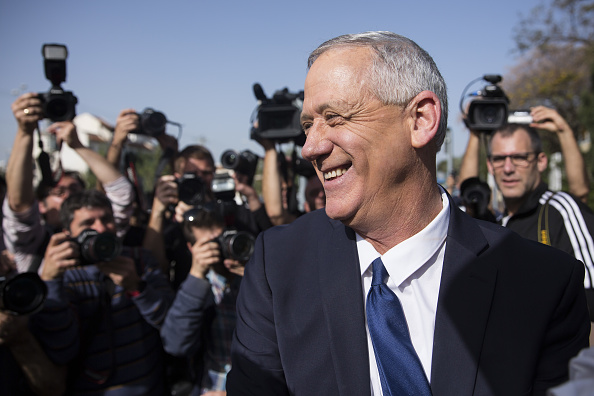REFERENDUM ON NETANYAHU
Prior to the election, Netanyahu had been mired with corruption allegations and Avichai Mandelblit, Israel’s Attorney General, announced his intention to press charges against the Prime Minister on cases that range from bribery to breach of trust. What’s significant about Netanyahu is that the allegations against him did not persuade him to leave office; rather the charges seemed to have motivated him to go further. Indeed, he and his party have painted these charges as falsified allegations as a witch hunt propagated by the left wing media. Other Israeli senior officials in the past have resigned when similar charges were pressed by the Attorney General, for example back in 2008 Prime Minister Ehud Olmert was faced with corruption charges which led to his resignation. Despite his supposed efforts to protect his name, he was still convicted of bribery and was sentenced to 27 months in prison. He was, however, released on July 2, 2017, after serving just 16 months of his sentence. But, Netanyahu has used such charges to his advantage, as such he appealing to his voter base, who will feel that he is being unfairly charged. Moreover, now that he will remain Prime Minister he will most likely paint the election victory as a hard-won battle against the liberal media. Given the circumstances of the elections, it was largely a referendum on Netanyahu’s premiership which he won even if it’s on a technicality.
BENNY GANTZ: THE “ANTI-NETANYAHU” CANDIDATE
Former IDF chief of staff, Benny Gantz, was the incumbent prime minister’s main opponent in the election. He had previously set his sights on becoming the new Defense Minister, but he became more ambitious as he became more popular opinion polls. In December 2018, he formed the Israel Resilience party, which aimed to oust Netanyahu from power. Gantz attempted to brand himself as a centrist candidate, but his public opinions on various issues raged from right-leaning to vaguely centrist. For example, on the issue of the Palestinian conflict, he rejected a two-state solution and instead called for a “separation from the Palestinians” without really explaining what he meant. Gantz’s biggest campaign platform was that he is the “anti-Netanyahu” candidate, who would seek to improve several sectors, such as education. Many of his policies are similar to that of Netanyahu’s, as such his campaign was aimed mostly at opposing Netanyahu, for instance, he had criticized alleged efforts from the government to avoid any of the charges that Netanyahu is facing, “i.e. the so-called French Laws” which would prevent the sitting Prime Minister from being indicted while in office. Netanyahu has denied any intention to introduce such laws and claimed it as another effort by the media to smear him. Moreover, Gantz had promised to introduce term limits, another dig at Netanyahu as he is now set to win a historic fifth premiership term. Gantz attempted to form a more powerful coalition as he allied with Yesh Atid (one of Likud’s former allies) and formed the Blue and White Party. His efforts did not die in vain as he successfully gained the same number of seats as Likud, but will most likely not be able to form a successful coalition that would take him to Beit Aghion.

EMPHASIS ON SECURITY
Netanyahu has previously run platforms based on security and has shown his willingness to go head to head with the biggest threats to Israel’s security, namely Iran and its allies and Hamas. Having served as IDF chief of staff, Gantz also ran a platform that focused on security. However, after Gantz’s personal smartphone was allegedly hacked by Iran, Netanyahu had questioned his opponent’s capacity to provide security for the country when he can’t even protect his private information. While security is still an important issue that Israeli voters care about, it can be inferred that Gantz’s seat gains indicate that many voters have grown tired of Netanyahu’s excessive focus on security. Gantz’s campaign that also centered on improving agriculture and education, however vague the promises were, might have been a breath of fresh air for some voters.
IMPLICATIONS ON THE PEACE PROCESS
It is still too soon to predict what another Netanyahu term would mean for the peace process. The most expected outcome so far is that the US Trump administration will soon reveal the “deal of the century”, which would most likely not have happened had Gantz won the election. The details of the deal are not clear, but judging various interviews from Trump cabinet members the deal will be economically based and is set to pave the way for more economic investments towards the Gaza Strip and the West Bank. Only time will tell what will come out of the deal of the century, and how it might differ from previously brokered peace deals that never came into fruition.







